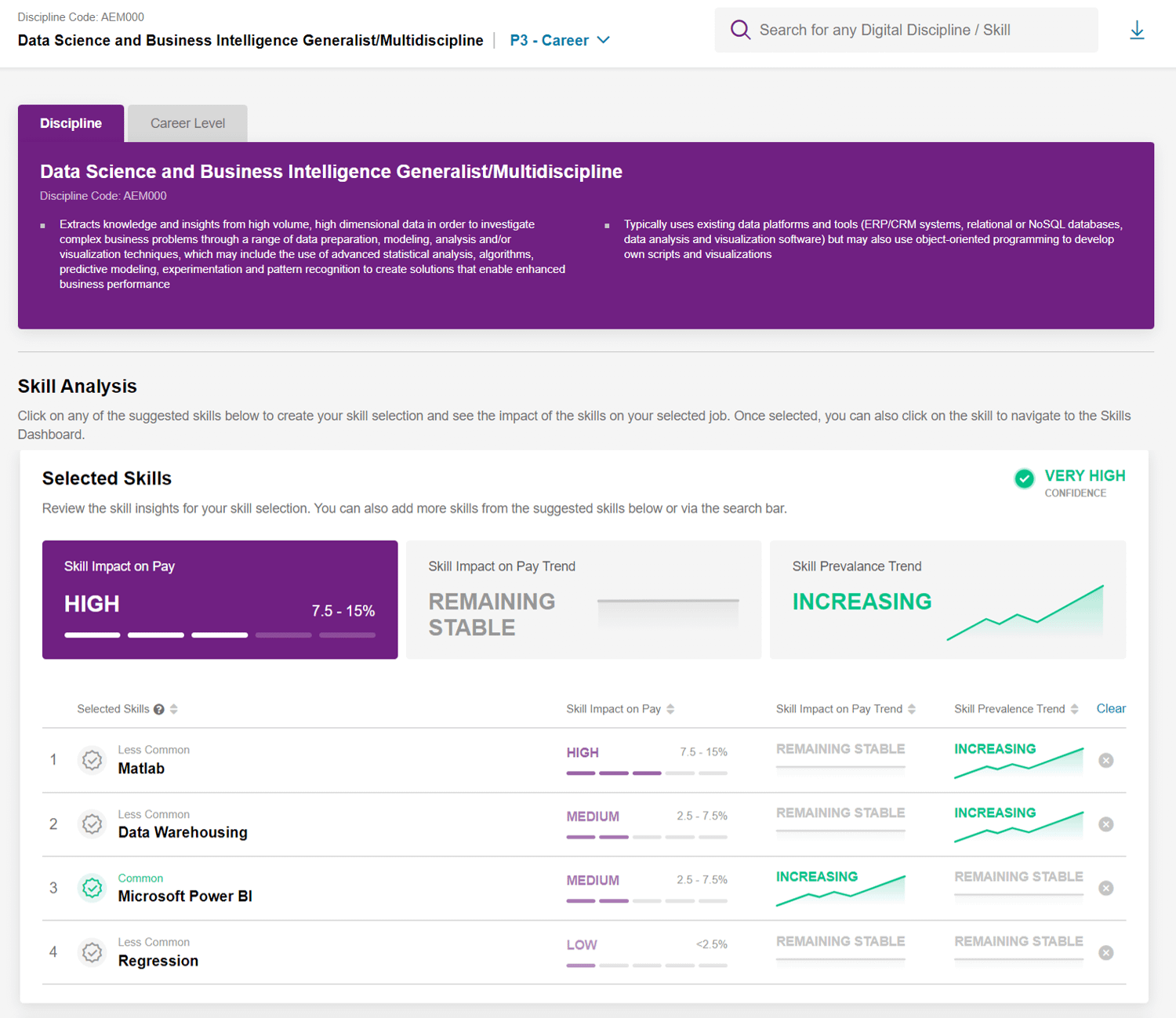Inform pay decisions with critical insights
The skyrocketing adoption of digital technologies in the past two years has intensified the demand for talent with business-critical digital skills. Around the world, every organization in every sector is hunting for scarce digital talent, and that is leading to a tighter labor market.
Seven out of 10 companies globally expect to have problems attracting new employees this year, according to WTW’s Reimagining Work and Rewards Survey. That is almost double the number of companies expecting attraction issues in 2020 (37%). As for retention, 6 in 10 companies (61%) expect to struggle retaining employees this year, a significant jump from 27% two years ago.

Moreover, 78% of those organizations find it difficult to attract and retain talent with digital skills, which is impacting the pace of their digital transformation. In a recent study, CEOs globally agreed that this need for digital talent isn’t merely an HR challenge – it is an organization-wide business priority. This is placing HR under considerable pressure to overcome challenges in attracting and retaining talent in order to support their organization’s digital transformation and subsequent business success.
Rewarding for skills is one area that HR is exploring. A recent WTW pulse survey revealed that 50% of organizations have already started looking into the efficacy of rewarding for skills, with another 25% stating they will consider their options, but not yet.
Most organizations consider skill-based pay to be an additional layer to traditional role-based pay practices. Understanding how skills impact pay, their prevalence in the market and related trend insights are foundational for decision-making. It’s imperative for any organization to have access to these market insights to complement the internal perspective of business-critical skills.
Globally, almost 2 out of 5 organizations are providing a differentiated Total Rewards offering to key talent. These numbers differ by region and, interestingly, show that only 1 in 5 European organizations differentiate for key talent. We do observe a trend that more organizations are starting to review their reward programs with a focus on differentiating for talent with critical skills.

Hiring and retaining a distinct group of employees with specialized skills requires a targeted approach. One size does not fit all, and organizations are using different reward programs that are aligned to their business strategy, but are flexible and agile enough to be refined to successfully win world-class talent.
The most common approaches to differentiate rewards for hot skills in the market range from anchoring employees at the higher end of the salary band to designing a separate pay range for roles with hot skills, and from providing a hiring or retention bonus to providing a skill premium on top of base salary. No matter which approach better suits your organization, the process of differentiation is impossible without up-to-date market insights.
Leveraging the power of skills-centric market insights that solutions like SkillsVue – Europe offer will help HR professionals to properly appraise skills according to their impact on pay and prevailing trends in the market. HR and business leaders need to make well-informed, data-driven decisions to differentiate where it matters most. Figure 3, for example, demonstrates how a combination of skills for a Data Scientist can lead to a high impact on pay.

Skills are no longer a buzz word without meaning. Applying a focus on skills will help organizations beat the competition for digital talent and support organizational transformation and growth.